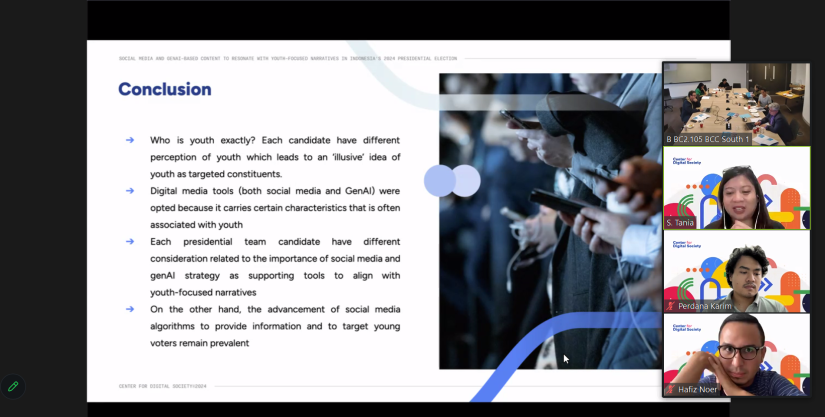
Yogyakarta, April 18th 2024─Although the 2024 elections are over, the political contestation in Indonesia is still not over. The dynamics of this political year is an interesting topic to be examined by observers. The Faculty of Social and Political Sciences UGM together with Deakin University and three other institutions collaborated in an International Conference titled “Populism, Digital Technologies and the 2024 Elections in Indonesia” which was held on April 17-18, 2024 in a hybrid manner.
“We are honored to be the organizer of the event which was held right after the 2024 Elections in Indonesia were completed. It is also a platform to examine different aspects of the dynamics of Indonesian populism. This research is not only about the election, but also other related issues such as technology development, Artificial Intelligence, misinformation, religion, people’s emotions, and socio-political factors,” said Prof. Ihsan Yilmaz, professor of Deakin University and Chair of Deakin University International Conference. The event was also supported by the Australian Research Council (ARC), Alfred Deakin Institute for Citizenship and Globalization (ADRI), and European Center for Populism Studies (ECPS).
A total of 31 research works have involved more than 60 researchers discussing various interesting topics, including gender and young groups in populist strategies and communication, the power of disinformation, and cancel culture with nuances of power and Islamic populism. All of these topics discuss the dynamics and interaction of society, especially in the digital world in responding to political issues. UGM itself involved 15 best researchers and lecturers in this conference that raised six interesting research topics.
Populism Theory is a theory about the political attitudes of the people or “the people” who are often juxtaposed with “elite” groups. This theory raises a lot about how criticism of the government is given, as well as its dynamics in society. One of the researches written by UGM Faculty of Social and Political Sciences Lecturer Dr. Arie Sudjito, S.Sos., M.Si., together with Frans Vicky Djalong, S.Sos, M.A., discussed the issue of the meaning of the people and democracy in the last 10 years. Under the title “Why the Digits Matter: “People”, Elite Power and Civil Society in Indonesian Presidential Election 2024″, the fact is presented that ‘people’ have different positions in different political agendas. The characteristics of “the people” in the 2024 Election are presented as a representation of the country’s welfare and progress towards the Golden Indonesia of 2024. The term “digital society” is said to be a strategic element to maintain the stability of Indonesian democracy.
Populism in Indonesia can also be examined by looking at the communication side. Through the research “Performing Populist: Joget Gemoy as Political Strategy in Indonesia’s 2024 Presidential Election on Social Media”, 5 researchers from the Faculty of Social and Political Sciences UGM analyzed how people reacted to political strategies with humorous elements and closely related to Millennials and Generation Z. The ‘Joget Gemoy’ strategy is considered to have succeeded in influencing people’s interest in politics, which certainly affects electability. The ‘Joget Gemoy’ strategy is considered to have successfully influenced people’s interest in politics, which certainly affects the electability of candidates. Disinformation and opinion gears circulating on social media are the main focus of criticism in this research.
Furthermore, a research entitled “The use of social media and generative AI to influence the youth narratives in the 2024 Elections in Indonesia” by a team from the Center for Digital Society (CfDS) Fisipol UGM. Which, in this study also discussed the influence of the use of social media and AI in youth issues in relation to the 2024 Elections.
This mixed event successfully served as a forum for aspirations and discussions for world researchers in viewing the implementation of Indonesia’s political year. Interesting and current ideas provide novelty for Populism Theory in its implementation in the digital era. In addition, this conference is expected to be a pathway for academic cooperation between the Faculty of Social and Political Sciences UGM with national and international institutions. As a form of Fisipol UGM’s commitment to the Sustainable Development Goals (SDGs), this activity also supports SDG 4 “Quality Education” and 17 “Partnerships to Achieve Goals”. In the future, multisectoral cooperation can continue to be established to produce joint innovations in solving community issues.
